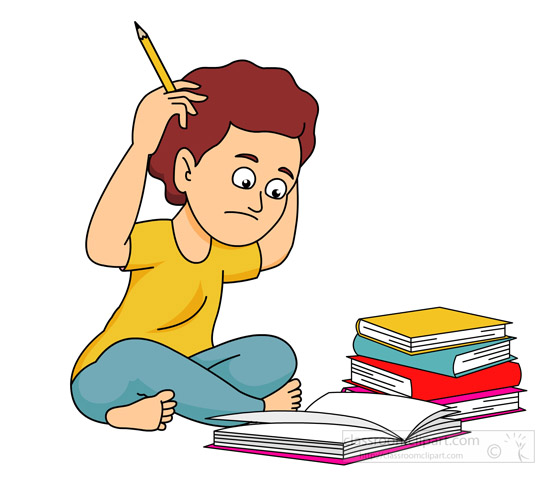This will seem like a weird analogy, but bear with me.
Imagine for a second that your thumbs are backward. Most other people’s thumbs are the “regular” way, but not yours. Now imagine you’re 5 years old and in kindergarten and learning how to write. The school system doesn’t check for backward thumbs, and doesn’t have any policy in place to teach you differently even if they did realize your thumbs were backward. Imagine how hard it would be to write with a standard pencil and paper and finger formation, and how frustrating it would be when the teachers would only teach how to do it for “normal” thumbs. Your grades would plummet. People would assume you were being lazy. Or maybe you were dumb. “Writing isn’t that hard, why can’t you do it right?” “Practice harder.” “Don’t you realize how important good penmanship is?” “You look like an idiot with that handwriting.”
Now imagine you’re all grown up, having gone through 12 grades of that. Your penmanship still sucks despite the fact that you’ve worked harder than anyone else in the class for 12 long years. But at least you’re out of school now, right? Penmanship doesn’t have to be a part of your daily life anymore. You’re certainly not going to get a job as a calligrapher, so it isn’t that big of a deal, right?
Now imagine that suddenly instead of talking face to face or via phone, everyone prefers to write letters. At work, even though you didn’t pursue a job in the handwriting field, you’re now expected to write letters every day. Tons of them. To colleagues, bosses, clients. And in personal life, no one calls anymore, but instead they post handwritten notes on the bulletin boards. You want to keep up with your friends, share your ideas, get invites to parties, etc., but it’s really hard to do it unless you write notes too.
So you do. You spend 10 times as long as your peers to write these notes, erasing and re-writing the letters to try to get them as clear and straight as you can, but your thumbs are still backwards and you’re still using pens and paper and handwriting skills that were meant for forward-thumbed people. Your notes aren’t perfect. After 15 minutes, you have a 4-sentence note that most people could jot down in 2 minutes. It’s squiggly and crooked, but it’s readable, it makes sense, and most importantly, it’s actually really funny. Or poignant. Or important.
Now imagine posting that note on the wall. Some of your friends post back about how funny or poignant or important it was, sharing their own reactions to your thought. But one of your friends posts a note stating how squiggly and crooked your handwriting is, and that it really ought to be smooth and straight.
Does that friend honestly think you don’t know that? That you didn’t spend 7 times as long as s/he would have to make it as smooth and straight as possible before posting? That you hesitate to even WRITE notes because they take so long, are so frustrating to do, reveal to everyone how backwards your thumbs are, and because his/her negative reaction is exactly what you’re worried you’ll get? That you re-phrase your thoughts over and over again so that you can write them using as few words as possible?
This is what living in the age of social media and email is for people with dyslexia. It is under-diagnosed or diagnosed too late in life for so many people. And when it is diagnosed correctly and in a timely fashion, our schools have practically no systems in place to deal with it anyway. Public schools are locked into specific styles of teaching that leave a huge portion of the population behind. Kids aren’t taught the skills they need to work around their disabilities and find new paths to learn, and so they get stuck. And then on top of that, we pile on this guilt as if it is somehow their fault.
So the next time you have the urge to be a grammar Nazi, to point out someone’s spelling error, to correct word usage, or lament over punctuation misuse, STOP. Stop yourself and think for a moment. Is the writing in question a professionally published work (e.g., a novel, a resume, a business website, an official company flyer) in which we expect it to be professionally edited before being shared? Is the person who wrote it commenting on someone else’s poor grammar, and is therefore being hypocritical? Or is this person just writing a casual email or posting a FB note to share with friends, family members, and maybe colleagues? Because unless the content is something that should be professionally edited, your comments about spelling or grammar are WRONG. They are not welcome or appropriate. Spelling and punctuation are inconsequential in these forums in comparison to the content of what that person is trying to say. If you can’t see beyond them into the content of the text itself, that is your problem, not theirs. And pointing out or correcting someone in these forums is as rude as telling a person whose native language is not your own that their accent is bad. Or telling a person in a wheelchair that they ought to use the stairs.

